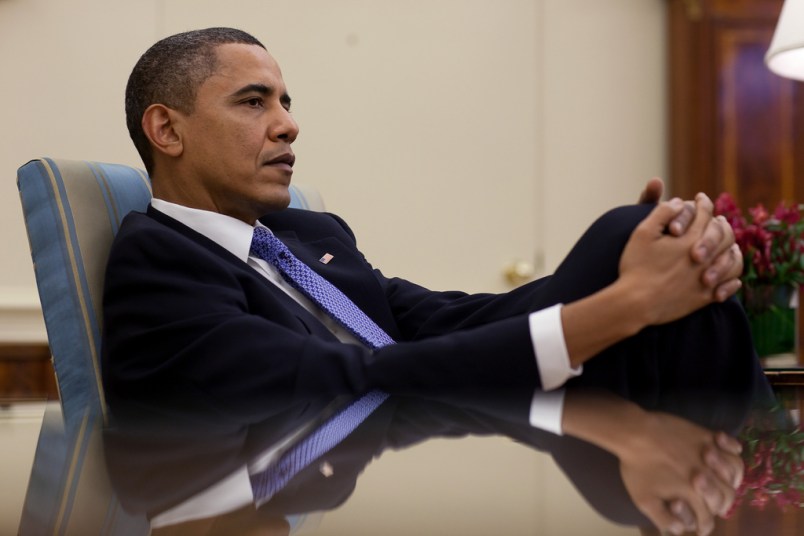Update: President Obama sent a letter to Congressional leaders spelling out his decision to direct strikes against Libyan air defenses over the weekend and citing his Constitutional authority for the military action.
President Obama held out the threat of targeting Libyan Leader Muammar Qaddafi personally Monday but said the U.S. would stop short of doing so — at least for now.
Instead, Obama stressed the importance of sticking to the mandate of the U.N. resolution passed Thursday, which focuses on preventing Qaddafi from crushing opposition forces in a large-scale massacre.
“It is U.S. policy that Qaddafi needs to go … and we have a wide range of tools to support that policy,” Obama said, mentioning previous efforts to freeze his assets to prevent him from purchasing weapons and mercenary soldiers.
The U.S. has “created one of the most powerful international consensuses,” which is focused on the “isolation of Col. Qaddafi,” he said.
But Obama also stressed that the UN resolution specifically deals with the “humanitarian crisis” in Libya, adding that “it’s important for us to stick to that.”
Obama made the comments while appearing alongside Chilean President Sebastian Pinera on a swing through Latin America.
Over the last two days, Defense Secretary Robert Gates and Adm. Mike Mullen, chairman of the Joint Chiefs, have repeatedly said the military operation should not target Qaddafi personally or exceed the mandate approved by the U.N. Security Council.
The resolution did not specify the toppling of Qaddafi or his killing, and so far France is the only country to formally recognize the Libyan provisional government made up of opposition supporters.
“The key is, first of all, to establish the no-fly zone, to do what we can to prevent him from using his military forces to slaughter his own people,” Gates said.
Mullen, in his comments during Sunday morning television interviews, also stressed that the U.S. military mission in Libya is “limited” and not focused on getting rid of Qaddafi.
“Certainly, the goals of this campaign right now are limited, and it isn’t about seeing him go,” Mullen continued. “It’s about supporting the U.N. resolution, which talked about eliminating or limiting Qadhafi’s ability to harm his own people.”
Obama and U.S. military leaders also underscored the international nature of the mission —
that the U.S. took the lead in disabling Qaddafi’s air-defenses through Tomahawk strikes, but would now work in conjunction with the Arab League and other countries’ forces to institute the no-fly zone and ensure civilians are protected and a large-scale humanitarian crisis is averted.
That second phase of the mission, he said, is expected to take “a matter of days, not weeks.”
Obama Monday afternoon sent a letter to Congressional leaders outlining his reasons for directing strikes against Libya’s air defenses and citing his Constitutional authority for the military action.
The letter pushes back against criticism form Republicans and liberals in his own party that he has failed to seek Congressional approval for military intervention and therefore lacks the power to use military force in Libya.
“Left unaddressed, the growing instability in Libya could ignite wider instability in the Middle East, with dangerous consequences to the national security interests of the
United States,” he wrote.
“…I have directed these actions, which are in the national security and foreign policy interests of the United States, pursuant to my constitutional authority to conduct U.S. foreign relations and as commander in chief and chief executive.”






